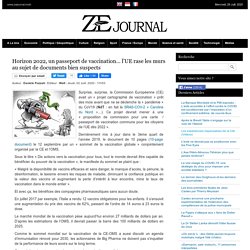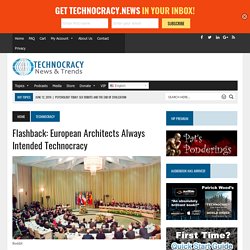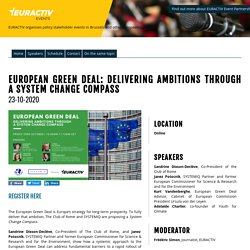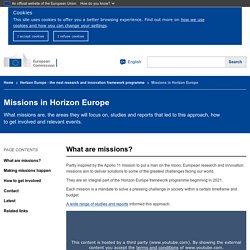

Une loi d'obligation vaccinale se prépare à la commission Européenne (avocat Luis de Miguel Ortega) Horizon 2022, un passeport de vaccination… l’UE rase les murs au sujet de documents bien suspects. Auteur : Daniele Pozzati | Editeur : Walt | Jeudi, 02 Juill. 2020 - 11h53 Surprise, surprise, la Commission Européenne (CE) avait un « projet cartographié de vaccination » prêt des mois avant que ne se déclenche la « pandémie » du CoV19 (NdT : en fait le SRAS-COV-2 « Caroline du Nord »…).

Ce projet devrait mener à une « proposition de commission pour une carte / passeport de vaccination commune pour les citoyens de l’UE dès 2022 ». Dernièrement mis à jour dans le 3ème quart de l’année 2019, le document de 10 pages (10-page document) le 12 septembre par un « sommet de la vaccination globale » conjointement organisé par la CE et l’OMS.
Sous le titre « Dix actions vers la vaccination pour tous, tout le monde devrait être capable de bénéficier du pouvoir de la vaccination », le manifeste du sommet se plaint que : Et avec ça, les bénéfices des compagnies pharmaceutiques sans aucun doute. En juillet 2017 par exemple, l’Italie a rendu 12 vaccins obligatoires pour les enfants. Day 3: Technocracy In Europe And America. Once upon a time, Jean Meynaud (1914-1972) was a professor of Political Science at the University of Paris and widely known as a leading political scientist in Europe.

His works are still recognized as foundational in modern Europe, but you would be hard-pressed to find any American who ever heard his name. In 1964, Professor Meynaud wrote a seminal book with the simple title of Technocracy. Indeed, Europe was not ignorant of the changes taking place that rankled institutions as well as the people they represented, and there was no love lost for unelected and unaccountable technocrats who were usurping power. At the time in France, this topic was even on the lips of political protestors who cried “Down with Technocracy”. Meynaud noted that “the fundamental basis of technocracy is a faith in an efficiency so great that maximum results are obtained by minimum effort.” As his book clearly shows, Meynaud really understood what was about to take place.
Has this happened in America? Flashback: European Architects Always Intended Technocracy. The EU was largely architected by members of the Trilateral Commission, who intended Technocracy from the very start.

The EU formally started with the 1992 Maastricht Treaty, in the same year of the Earth Summit in Rio, Brazil, which created Agenda 21 and Sustainable Development, aka Technocracy. ⁃ TN Editor Leafing through the British press over the last week, you can’t but notice the increased sightings of a rare political subspecies: the “technocrat”. Prominent technocrats include the Italian prime minister designate, Mario Monti, and the Greek PM, Lucas Papademos, who have been parachuted into the top job, the papers say, in order to act out diktats of their “paymasters” in Germany and France.
In the Telegraph, Christopher Booker has revealed that “EU architects never meant it to be a democracy“: technocracy was always the plan. And largely they do. The word “technocracy” comes from the Greek words “tekhne”, meaning skill, and “kratos” meaning power. Read full story here… European Green Deal: delivering ambitions through a System Change Compass. The European Green Deal is Europe’s strategy for long-term prosperity.

To fully deliver that ambition, The Club of Rome and SYSTEMIQ are proposing a System Change Compass. Sandrine Dixson-Declève, Co-President of The Club of Rome, and Janez Potocnik, SYSTEMIQ Partner and former European Commissioner for Science & Research and for the Environment, show how a systemic approach to the European Green Deal can address fundamental barriers to a rapid rollout of the EU Green Deal, and set out the transformations needed to create a resilient economy and prosperous society. On the day of its public release, the System Change Compass report will be discussed with Kurt Vandenberghe, European Green Deal Advisor, Cabinet of European Commission President Ursula von der Leyen, and Adelaïde Charlier, Co-founder of Youth for Climate.
The panel will be moderated by Frédéric Simon, Euractiv’s environment and energy editor. Un pacte vert pour l'Europe. Missions in Horizon Europe. What are missions?

Partly inspired by the Apollo 11 mission to put a man on the moon, European research and innovation missions aim to deliver solutions to some of the greatest challenges facing our world. They are an integral part of the Horizon Europe framework programme beginning in 2021. Each mission is a mandate to solve a pressing challenge in society within a certain timeframe and budget. A wide range of studies and reports informed this approach. Missions will be bold, inspirational and widely relevant to society be clearly framed: targeted, measurable and time-bound establish impact-driven but realistic goals mobilise resources link activities across different disciplines and different types of research and innovation drive a systemic change and transform landscapes rather than fix problems in existing ones make it easier for citizens to understand the value of investments in research and innovation Areas where there will be missions Making missions happen Next steps How to get involved.
Document de réflexion « vers une Europe durable à l’horizon 2030 » : point de vue de l’IDDRI.